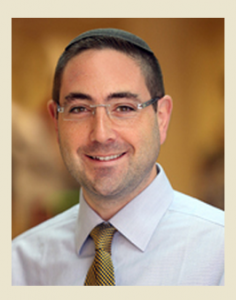
By Rabbi Ari Enkin, rabbinic director, United with Israel
A major theme in this week’s Torah portion (in Israel), which is Emor (Leviticus 21:1-24:3, is the holiness of the “Priestly Class” of the Jewish people (known as the Kohanim) and the strict code of holiness that they are required to follow.
One of the rules that applies to a Kohen is that he is forbidden to come into contact with the dead. The only exception to this rule is for his seven closest relatives. A Kohen is allowed to defile himself to tend to the funeral and burial of such relatives, but once they are buried, he may never go back to the cemetery. There are no exceptions to this rule. A Kohen is simply forbidden to attend the funeral of a friend or distant relative.
Another rule is the prohibition against marrying a divorcee or a convert. Not that there is anything wrong with a divorcee or a convert, but a Kohen is simply required to maintain an immaculate and impeccable code of purity which requires him to marry a woman who was born Jewish and never married. There are many other such rules as well.
The Torah introduces all these restriction with the words “Vayomer Hashem el Moshe Daber El Hakohanim” (And G-d said to Moses tell the kohanim…), but in most Torah portions, the reading is introduced with the words “Vayedaber Hashem el Moshe leimor” (And G-d spoke to Moses saying). Our Sages tell us that the difference between Vayomer (said) and Vayedaber (spoke) is that Vayomer refers to a more gentle manner of conveying a message, while Vayedaber is slightly harsher.
As such, the question is asked: Why do the Torah portion and all the restrictions placed upon kohanim open with Vayomer? One would think that in advance of a whole list of demanding rules, the opening word would be Vayedaber. This would better convey a message that God “means business,” so to speak, and that the Kohanim must follow these laws – or else. Instead, the Torah uses the more gentle and even loving wording of Vayomer – as if the Kohanim are excitingly looking forward to being bound to all these rules!

Kohanim perform the priestly blessing at a mass prayer session at the Western Wall in Jerusalem. (Miriam Alster/Flash90)
The answer, it is explained, is that the Kohanim were charged with being the spiritual role models of the Jewish people. For a person to truly feel like a teacher, leader, and role model, he must be made to feel special. That he is different and unique. His lifestyle is not “difficult” in the common usage of the word…just held to a higher standard. However, if a person is told that he is going to be the leader and role model, and as such, that his life is going to restrictive and difficult, then he really won’t be too excited to take on the role, let alone be successful.
This is why the Torah introduces this portion with Vayomer, as if to tell the Kohanim, “How fortunate are you that you have been chosen to show the people how to serve God. Don’t think that I am giving you a restrictive lifestyle. Rather, I am giving you a lifestyle that will bring blessing upon you and on the nation.”
Indeed, to this very day, Kohanim who are not especially religious or observant appreciate their unique role and will not violate the Kohanic code of purity even if they do not keep most other mitzvot (commandments) of the Torah.
And so it is with the mentors, teachers and role models in our lives. They are extremely special people. And they do have to live up to a higher standard. But they must realize – and even be told — that living up to such standards is a privilege, not a burden.
We cannot become Kohanim. If you weren’t born a Kohen, you’ll never be one. But we all can become role models and leaders in our own way. By living up to a higher standard in all our dealings, we will be able to influence people far beyond our reach.
For more insights by Rabbi Ari Enkin on this week’s Torah portion, click on the links below.
https://unitedwithisrael.org/living-torah-showing-compassion-even-to-criminals/
https://unitedwithisrael.org/living-torah-laws-of-purity-stress-mutual-respect/
